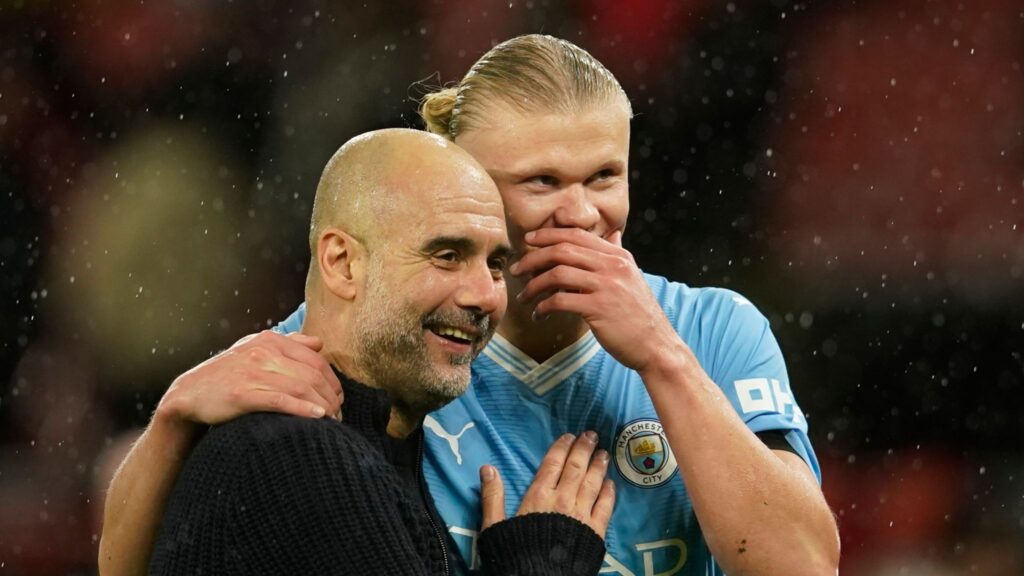For more than a decade, Pep Guardiola has been synonymous with possession football. His philosophy turned passing sequences into an art form, his teams dictating tempo and suffocating opponents with endless control. But something has shifted. The Manchester City manager, once the high priest of possession, is tearing down the very cathedral he built.
Recent performances have revealed a striking departure from tradition. Possession statistics are falling, passing sequences are shorter, and the midfield — once the sacred battleground of Guardiola’s teams — is often bypassed entirely. Instead, the new approach is pragmatic, direct, and rooted in territory. Long balls from the goalkeeper launch attacks, fast transitions exploit space, and Erling Haaland charges onto deliveries that would once have been considered sacrilege in Pep’s system.
This tactical revolution has been symbolised by players such as Abdukodir Khusanov, deployed as a rugged full-back, offering steel rather than elegance. It reflects a broader evolution: from Dani Alves and Joshua Kimmich, masters of technical buildup, to functional defenders tasked with winning duels and breaking lines quickly.
The Guardiola of today also carries a different aura. Once effervescent and evangelical, he now cuts a more brooding figure on the touchline, visibly wearied by the burden of reinvention. His comments suggest recognition that modern football is being shaped by others — from the vertical transitions of Newcastle and Liverpool to the aggressive pressing of Brighton. In response, Guardiola has admitted he must prove himself again, this time with a different strategy.
What makes this moment unique is that ageing managers typically double down on their principles. Arsène Wenger never abandoned the pursuit of the perfect passing move. José Mourinho became a caricature of defensive dogma. Carlo Ancelotti leaned further into his laissez-faire style. Guardiola, however, is rejecting his own orthodoxy, daring to betray the style that defined his greatness.
This counter-revolution is not without risk. Unlike past evolutions made from a position of dominance, this shift has come after struggles and fatigue. The danger is that in abandoning his doctrine, Guardiola risks losing the very control that made him untouchable. Yet, it also signals a bold willingness to adapt when most would cling to the familiar.
The coming months may therefore be the most compelling chapter of his career. The man who defined modern football is testing its limits once more — and the outcome could either reaffirm his genius or mark the unravelling of an empire.

